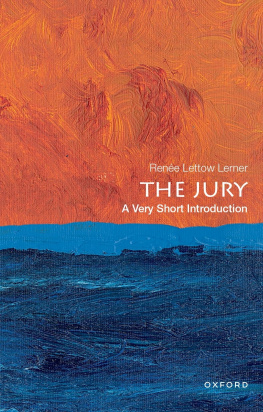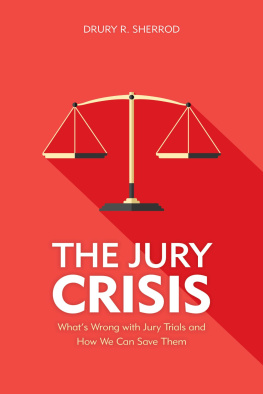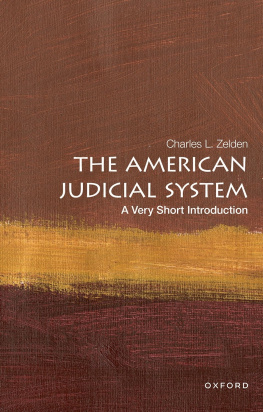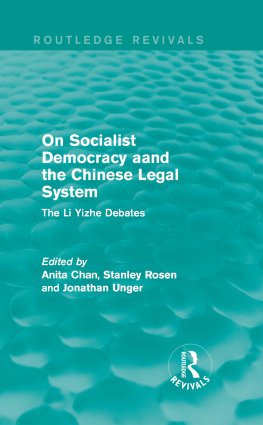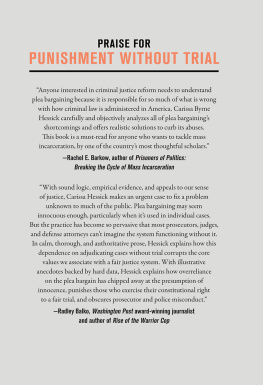Juries in the Japanese Legal System
Trial by jury is not a fundamental part of the Japanese legal system, but there has been a recent important move towards this with the introduction in 2009 of the lay assessor system whereby lay people sit with judges in criminal trials. This book considers the debates in Japan which surround this development. It examines the political and socio-legal contexts, contrasting the view that the participation of ordinary citizens in criminal trials is an important manifestation of democracy, with the view that Japan as a society where authority is highly venerated is not natural territory for a system where lay people are likely to express views at odds with expert judges. It discusses Japans earlier experiments with jury trials in the late nineteenth century, the period 1923 to 1943 and, up until 1970 in US-controlled Okinawa, compares developing views in Japan on this issue with views in other countries, where dissatisfaction with the jury system is often evident, and concludes by assessing how the new system in Japan is working out and how it is likely to develop.
Dimitri Vanoverbeke is Professor of Japanese Studies at the Catholic University of Leuven (KU Leuven), Belgium.
Routledge Law in Asia
Series editors:
Randall Peerenboom
Pip Nicholson
Asian Discourses of Rule of Law
Theories and implementation of rule of law in twelve Asian countries, France and the U.S.
Edited by Randall Peerenboom
Human Rights in Asia
A comparative legal study of twelve Asian jurisdictions, France and the USA
Edited by Randall Peerenboom, Carole J. Petersen and Albert H.Y Chen
Support for Victims of Crime in Asia
Edited by Wing-Cheong Chan
Administrative Law and Governance in Asia
Comparative perspectives
Edited by Tom Ginsburg and Albert H.Y. Chen
Regulation in Asia
Edited by John Gillespie and Randall Peerenboom
New Courts in Asia
Edited by Andrew Harding and Penelope (Pip) Nicholson
Legal Education in Asia
Edited by Stacey Steele and Kathryn Taylor
Legal Reforms in China and Vietnam
A comparison of Asian communist regimes
John Gillespie and Albert H.Y. Chen
Public Interest Litigation in Asia
Po Jen Yap and Holning Lau
Freedom of Information Reform in China
Information flow analysis
Weibing Xiao
Law and Development in Asia
Edited by Gerald Paul McAlinn and Caslav Pejovic
The Judicialization of Politics in Asia
Edited by Bjorn Dressel
Juries in the Japanese Legal System
The continuing struggle for citizen participation and democracy
Dimitri Vanoverbeke
Juries in the Japanese Legal System
The continuing struggle for citizen participation and democracy
Dimitri Vanoverbeke
First published 2015
by Routledge
2 Park Square, Milton Park, Abingdon, Oxon OX14 4RN
and by Routledge
711 Third Avenue, New York, NY 10017
Routledge is an imprint of the Taylor & Francis Group, an informa business
2015 Dimitri Vanoverbeke
The right of Dimitri Vanoverbeke to be identified as author of this work has been asserted by him in accordance with sections 77 and 78 of the Copyright, Designs and Patents Act 1988.
All rights reserved. No part of this book may be reprinted or reproduced or utilised in any form or by any electronic, mechanical, or other means, now known or hereafter invented, including photocopying and recording, or in any information storage or retrieval system, without permission in writing from the publishers.
Trademark notice: Product or corporate names may be trademarks or registered trademarks, and are used only for identification and explanation without intent to infringe.
British Library Cataloguing in Publication Data
A catalogue record for this book is available from the British Library
Library of Congress Cataloging in Publication Data
Vanoverbeke, Dimitri.
Juries in the Japanese legal system : the continuing struggle for citizen
participation and democracy / Dimitri Vanoverbeke.
pages cm. (Routledge law in Asia)
Includes bibliographical references and index.
1. JuryJapan. I. Title.
KNX1585.V36 2015
ISBN: 978-0-415-54021-6 (hbk)
ISBN: 978-1-315-70990-1 (ebk)
Typeset in Times New Roman
by Wearset Ltd, Boldon, Tyne and Wear
Contents
PART I
Trial by jury and judicial reforms in Japan: setting the scene
PART II
Trial by jury in a historical context
PART III
Trial by jury in contemporary Japan
The trial by jury has attracted the attention of popular authors and scholars for a very long period of time. It was Alexis de Tocqueville who in 1836 described the importance of the trial by jury in a democratic polity by observing the new institutions of America in the early nineteenth century. Scholars have analysed the trial by jury as a political institution while others have been looking at it from a legal perspective, but it is harder to come by analyses that combine the legal and political perspectives. This book seeks to remedy that deficit by covering the trial by jury as a dynamic system that unfolds over a longer period of time, integrating the modern and contemporary dynamics.
The participation of citizens in criminal trials ties together certain topics that have been at the core of Japanese studies worldwide, i.e. the long process of modernization that Japan experienced, the changing relationship between citizen and state, and the political process of the genesis, stability and changes in the institutions of the polity. This book seeks to contribute to this strand of research. The topics tackled in this book are therefore part of a wider picture, or actually of a movie, a narrative of Japans history, rather than a snapshot describing one of the institutions of Japan. This book also tries to bring together points that have already been made by important and pioneering scholars of legal and political history in Japan i.e. mainly Toshitani Nobuyoshi and Mitani Taichir. Their works are the foundations of this book.
The discourse on the appropriateness of the trial by jury in todays society is salient not only in Japan but also in many other legal systems. Even those countries that may be labelled cradles of the trial by jury England and France are reforming this traditional institution which was always held to be the guarantor for the rule of law and for an efficient check on state power by the people. Moreover, the way in which trial by jury exists in todays society is under pressure by the legal professionals and not in the least by recent decisions by the European Court for Human Rights voicing concerns about the rights of defence. Reforming and even abolishing the trial by jury is the path that some countries, traditional advocates of the trial by jury, have embarked upon. Some Asian countries seem to take a different path. The calls for more transparency of government, accountability of the leaders and higher commitment of the people in state affairs have pushed judicial reforms up the political agenda. In societies where a turn from traditional and so-called paternalistic states or Confucian state control seems to wane and where globalization and economic sustainability demands more individual initiative and responsibility, the role of the law is expected to increase in importance, and the need for more commitment by the citizens in the judicial institutions is seen as a condition for future development in highly competitive societies. The trial by jury is certainly a possible answer to the needs of todays Asian societies in transition and in the midst of a quest for a new identity, but what does it actually mean for Japan and Japans role in a wider context?


